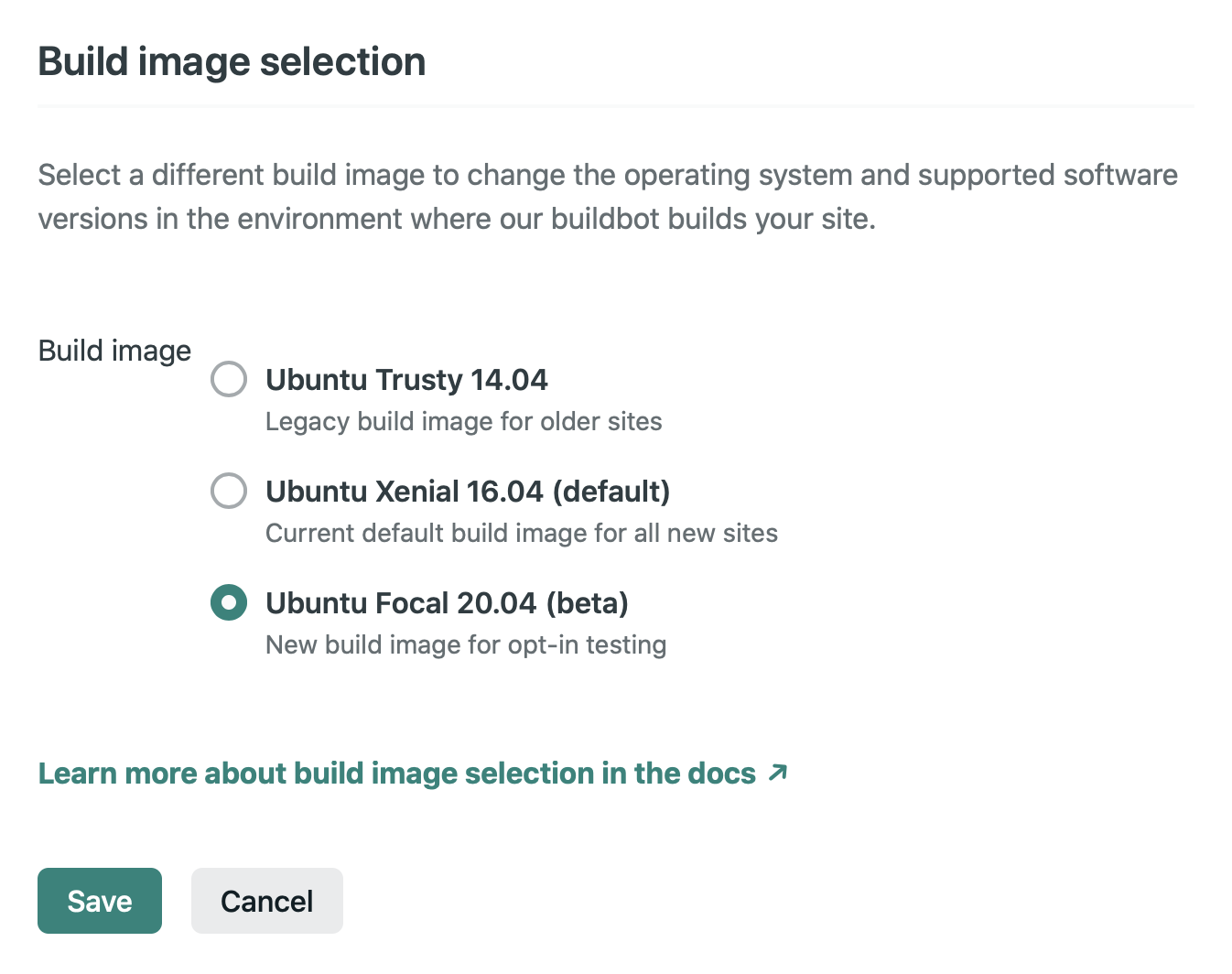
Hi, I'm Eric.
I’m an avid world traveler, photographer, software developer, and digital storyteller.
I help implement the Content Authenticity Initiative at Adobe.

Hi, I'm Eric.
I’m an avid world traveler, photographer, software developer, and digital storyteller.
I help implement the Content Authenticity Initiative at Adobe.
30 May 2021
I’ve recently started to enjoy building web sites using Zola, a Rust-based static site generator. I’ll write more about my decision to use Zola in a future “how I built this” article, but for now I wanted to share with the Zola community some tips on using custom builds of Zola.
I have several sites that I have either built or am about to build using Zola (this being one of them!). I uncovered a bug in how the next/previous page links are constructed when using transparent sections.
The bug (a race condition) often rendered my intended site structure with missing links to next and previous pages.
Good news: The fix was pretty easy.
Bad news: The fix was not likely to appear in a released version for some time to come.
As mentioned in the forum thread, not having access to this bug fix was going to cause me some heartache. Vincent was kind enough in follow-up discussion to suggest a workaround: I could publish on Netlify with a custom build of Zola.
This is what I’m doing, both on this site and on several others that I am either building or have recently deployed.
Constructing a build that ran locally was pretty easy; I backported PR #1456 onto the existing tagged 0.13.0 release of Zola. The end result is available on my fork of Zola and is tagged in that fork as release 0.13.0.es2. As with anything open-source, you are welcome to use it directly or adapt it for your own purposes.
2022 Update: I’m doing the same thing again now to have early access to a PR I submitted that lets me render some of my sites much faster than the current release. You can find my fork of Zola here and the tagged release as release 0.16.1.es1.
Getting that build running on Netlify turned out not to be a particularly simple thing to do.
I am sharing how I did this in hopes that it might make life easier for the next person who walks this path.
My personal development environment is an Intel-based Mac laptop that I haven’t (yet) updated to Big Sur.
2022 Update: I’m doing the same thing again and now have an M1-based Mac laptop.
Netlify runs Zola (or whatever SSG you are using) in a custom build image that is based on Ubuntu 16.04. Netlify comes prepared to install and run recent released versions of Zola (up to the now-current 0.13.0) via their binrc tool.
If you’re eager for answers, feel free to skip ahead to What Did Work below.
If you’re up for a war story, here are the false starts:
next BranchI started by trying to build the next branch as of commit 22c29fe, which is when my PR was merged. This failed in two different ways:
x86_64-unknown-linux-gnu target with this error:error: failed to run custom build command for `ring v0.16.19`
next trunk with my PR merged via the existing Docker container. I noticed that there was a Docker image in the repo, so I tried to use that to build Zola. I was thinking I could extract the binary and post that to a place Netlify could access. I found that somewhere between 0.13.0 and the merging of my PR, the Docker container stopped working. Running docker build --progress plain . on that commit failed with the following message (edited for legibility):#7 97.45 error: could not compile `minify-html`
#7 97.45
#7 97.45 Caused by:
#7 97.46 process didn't exit successfully: `rustc --crate-name minify_html --edition=2018
/usr/local/cargo/registry/src/github.com-1ecc6299db9ec823/minify-html-0.4.10/src/lib.rs
(options omitted)
` (signal: 9, SIGKILL: kill)
#7 97.46 warning: build failed, waiting for other jobs to finish...
#7 119.8 error: build failed
#7 ERROR: executor failed running [/bin/sh -c cargo build --release --target x86_64-unknown-linux-gnu]: exit code: 101
------
> [builder 5/9] RUN cargo build --release --target x86_64-unknown-linux-gnu:
------
executor failed running [/bin/sh -c cargo build --release --target x86_64-unknown-linux-gnu]: exit code: 101
I then gave up on the next branch and started building the custom branch I mentioned earlier. Again, this is 0.13.0 with a backport of my PR and some yet-to-be discussed tweaks to the build infrastructure.
custom branch. This build succeeded, but then failed to deploy into the Netlify environment because of a system library mismatch. I don’t have the deploy logs for that handy any more, but i think it was glibc vs MUSL if I recall correctly.Researching on this build failure led me to the fact that the default Rust container uses Debian and Netlify uses Ubuntu.
So, I started doing major surgery on the Dockerfile with the intent of building Zola directly on Ubuntu and mimicing the build steps in Zola’s Azure pipeline as closely as possible. See my commit e19dd2c for details:
That led to the next few failures:
binrc isn’t an option for arbitrary binaries. I thought, based on my reading of the binrc documentation that I could post a release on GitHub and have Netlify download that release.10:11:57 AM: ────────────────────────────────────────────────────────────────
10:11:57 AM: 1. build.command from netlify.toml
10:11:57 AM: ────────────────────────────────────────────────────────────────
10:11:57 AM:
10:11:57 AM: $ binrc install scouten/zola 0.13.0.es2 && zola build --base-url $DEPLOY_PRIME_URL
10:11:57 AM: zola's version v0.13.0.es2 doesn't match any known constraint, binrc cannot install it
I’m not 100% sure, but I read this as saying that binrc is configured to only download from pre-approved repos and mine isn’t one of them.
So … back to the curl trick as originally suggested by Vincent. Next failure:
Building on Ubuntu 16.04 failed. I don’t have a log handy any more, but Rust was unable to generate a viable build when running on 16.04.
Building on Ubuntu 20.04 resulted in a binary that wouldn’t deploy on Netlify.
8:42:31 PM: $ curl -sL https://github.com/scouten/zola/releases/download/v0.13.0%2Bes1/zola -o ./zola && chmod +x ./zola && ./zola build --base-url $DEPLOY_PRIME_URL
8:42:32 PM: ./zola: /lib/x86_64-linux-gnu/libm.so.6: version `GLIBC_2.27' not found (required by ./zola)
This appears to be documented in the Rust world as follows:
Further reading led me to Netlify’s build image selection panel. There, waiting for me, was a button that I could click to switch to deploying using Ubuntu 20.04.
And that leads me to …
So, having eliminated the possibilities above, I’ll summarize the steps that ultimately did work for me: 🎉
I started from the tagged 0.13.0 release of Zola and added just the bug fix I wanted. This build is in the custom branch of my fork of Zola.
In the above branch, I made changes to the Dockerfile to allow me to generate a version of Zola that can deploy on Netlify.
This Dockerfile differs from the one in 0.13.0 as follows:
dockerize it.As of this writing, I don’t plan to submit this branch as a PR to Zola because the bug fix PR has already been accepted for the next major version of Zola and the Dockerfile changes serve a different purpose than the original Docker image. (Mine isn’t a deployment container, but rather a build vehicle.)
2022 Update: Run the following set of commands to generate the Zola build that you will reference later:
$ docker build --platform linux/amd64 .
$ export container_id=$(docker create --platform linux/amd64 image_id) # substitute image_id from docker build
$ docker cp $container_id:/release/zola.tar.gz zola.tar.gz
The --platform linux/amd64 tags are necessary if, like me, you are running on an ARM (in my case, Apple M1) host; this will cause Docker to run the container in x86 emulation mode rather than an ARM version of Linux. You can remove those flags if running on a native Intel host.
You should now have a .tar.gz file in your local host that you can post to whatever public URL you wish to use.
In the Netlify control panel for my site (Site page > Site settings > Build & deploy > Continuous deployment > Build image selection > Edit settings), I changed the choice of image to “Ubuntu Focal 20.04.”

2022 Update: Ubuntu 20.04 is now the default for new Netlify sites, so this step may no longer be necessary.
netlify.tomlOne last change, and I made that using Netlify’s file-based configuration, also known as netlify.toml. Here is the netlify.toml file for this site:
[build]
publish = "public"
command = "curl -sL https://github.com/scouten/zola/releases/download/v0.13.0.es2/zola-v0.13.0.es2-unknown-linux-gnu.tar.gz | tar zxv && chmod +x ./zola && ./zola build"
[context.deploy-preview]
command = "curl -sL https://github.com/scouten/zola/releases/download/v0.13.0.es2/zola-v0.13.0.es2-unknown-linux-gnu.tar.gz | tar zxv && chmod +x ./zola && ./zola build --base-url $DEPLOY_PRIME_URL"
What’s important here are the build.command and context.deploy-preview.command entries, which download the custom build, extract it from the tarball, and then use it to render the site content. (I’ve chosen to host the custom build as a GitHub release, but it appears you could use any publicly-accessible location that is convenient to you.)

Subscribe to my free and occasional (never more than weekly) e-mail newsletter with my latest travel and other stories:
Or follow me on one or more of the socials: